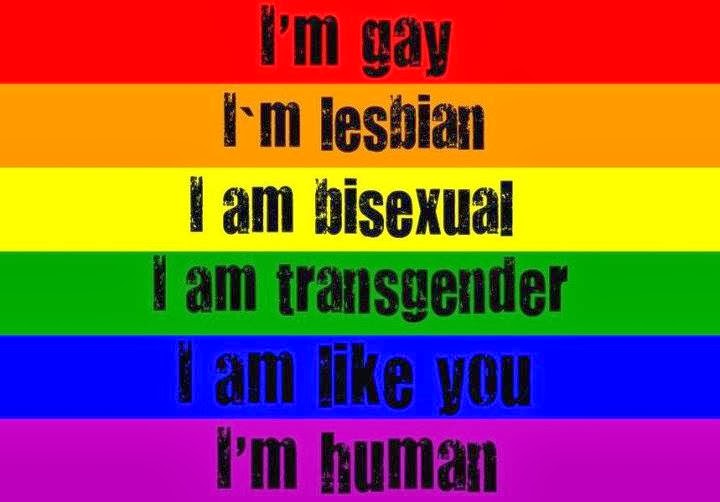Six Feet Under- All Lie Equal

Arshia Taqi is a third year law student at Pravin Gandhi College of Law, Mumbai and is also a trained yoga teacher.
Six Feet Under- All Lie Equal
The issue of homosexuality is much in discussion these days with various responses to the acceptance of the community as a part of the whole. They are associated with fear, disgust, prejudice, hatred and violation of civil rights. In 1860, when the Indian Penal Code was drafted, the British criminalized “sexual acts against the order of nature”. This Victorian era statute was struck down in 2009 by the Delhi High Court in the famous Naz Foundation Case, but the decision was overturned, on appeal, by the Supreme Court in 2013, which reasoned that the matter relating to LGBT rights and decriminalization of homosexuality should be left to the legislature.
There is widespread support for the scrapping of Section 377 among some sections of Indian society. The Supreme Court judgement overturning the Naz Foundation case has come in for heavy criticism as it runs against the history of the apex court acting as a champion of the underprivileged. In the Naz Foundation versus Government of NCT of Delhi, the issue before the two-judge bench of the Delhi High Court was whether Section 377 of the Constitution violates the fundamental rights of the LGBT community and if so, should it be struck down as unconstitutional and should homosexual acts between consenting adults be legalized.
The bench of Justice Ajit Prakash Shah and Justice S. Muralidhar answered in the affirmative and read down Section 377 holding that it violated Articles 14, 15 and 21 of the constitution, which guaranteed the Right to Equality before law, Right not to be discriminated on the grounds of sex and Right to Life and Liberty respectively.
In an appeal to the Supreme Court i.e. Suresh Kumar Kaushal vs. Naz Foundation, the petitioners argued that Section 377 does not classify any particular group or gender and hence is not in violation of Articles 14, 15 and 21 of the Constitution.
While the Supreme Court judgement was still being debated, the United Nations Human Rights Council passed a resolution creating the post of an independent expert on sexual orientation and gender identity. This expert, once officially appointed, will be tasked with the job of studying and reporting annually the nature, cause and the extent of discrimination faced by the LGBT community around the world. The Indian representatives chose to abstain from voting all together to appoint the expert.
Whether the LGBT movement is a Western phenomenon or whether there is a serious need to sincerely bring changes to the existing Indian laws, the issue has now become the subject of national debate and now it is for the Parliament to legislate and ensure that individual’s rights are protected without adversely affecting the moral and ethical structure of Indian society. Throughout the centuries, Hinduism has been the most tolerant religious system and its teachings have a perennial youth and relevance to all ages and situations.
Firstly, the attitude towards homosexuality in Western culture derives from the Biblical teaching on the subject. The Bible claims that homosexuality is chosen sexual behavior which is unnatural, sinful, amoral, and abhorrent to God.
“Do not lie with a male as one lies with a woman; it is an abomination.” (Leviticus 18:22)
The punishment for homosexuality is death:—
If a man lies with a male as one lies with a woman, the two of them have done an abhorrent thing; they shall be put to death — their blood guilt is upon them (Leviticus 20:13).
According to the New Testament there is no salvation for those who engage in homosexual acts:—
Do you not know that the wicked will not inherit the kingdom of God? Do not be deceived: Neither the sexually immoral nor idolaters nor adulterers nor male prostitutes nor homosexual offenders. (1 Corinthians 6:9)
Western civil codes are based on biblical provisions; therefore earlier there were severe punishments for those who “had sex against the law of nature.” Psychiatrists believed that homosexuality was a kind of illness and was therefore treated by giving shock treatment to the ‘patient’ which ultimately turned him averse to sexual activity itself.
Hinduism is first of all a pragmatic religion which understands everything as being conditioned by time, place and circumstances. There is no universally accepted canon law in Hinduism; everything has to be judged according to its context – time, place and circumstances.
Hindus do not have a theory of natural law, which the Christians believe in, condemning homosexuality. If a certain behavioral pattern exists, then it is natural- that is part of the way things are in the Hindu universe. The Hindu universe is in general a tripartite structure – Heaven, earth and the mid-regions; past, present and the future; action, inertia and equilibrium; and sexuality is seen as being a triangle of (normative) male and female and (non-normative) neuter or the ‘ third-sex’. This view is advocated by texts of Ayurveda – the ancient Hindu system of health care, in its sections dealing with embryonic development and sex. “Now then the intense longing of love stimulated by the gods. When one (m) desires to be loved (priya) by a man or a woman or by men and women, he shall offer to the above mentioned gods oblations in the sacred fire”. This is followed by the description of the ceremony to be performed. Another casual reference is from the Shatapatha Brahmana (2:4:4: 19): in which Mitra, the God of the day, is said to implant his seed in Varuna, the God of the night, on the New Moon day.
In the current scenario, homosexuals are not accepted as a part our society, they are feared and ill-treated and judged, denied equality of status and officially barred from military service. We must treat the LGBT community as human beings and give them their much deserved dignity and rights.
Opinions are of the writer.


